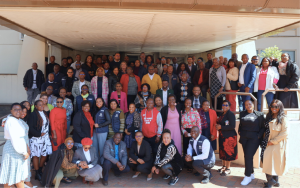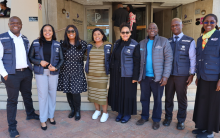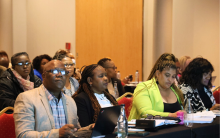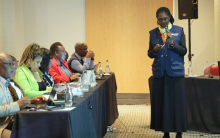Cholera Outbreak Response and After-Action Review
South Africa's multisectoral response to the Cholera Outbreak has culminated in successful containment within 165 days of the cholera outbreak official declaration. The initial cases were reported in Gauteng, with both patients having a history of travel to a neighboring country grappling with a cholera outbreak. Subsequently, the outbreak rapidly spread, affecting 17 out of 52 districts across five provinces, including Gauteng, Free State, Mpumalanga, North-West, and Limpopo. A solitary imported case was recorded in KwaZulu Natal Province on July 18, 2023, but since then, there have been no confirmed cases of cholera. By July 31, 2023, a total of 1,380 cases (199 laboratory-confirmed) and 47 deaths had been reported, resulting in a case fatality rate of 3.4%.
The World Health Organization (WHO) in South Africa, UNICEF, Medecins Sans Frontiers (MSF), Clinton Health Access Initiative (CHAI), and other esteemed partners, mounted a comprehensive response effort to support The National Department of Health, Provincial Departments of Health, Department of Water and Sanitation, that ultimately led to the containment of the outbreak.
To assess the effectiveness of the cholera outbreak response and to document valuable insights, an After-Action Review (AAR) was conducted from August 29 to 30, 2023. The AAR aimed to identify best practices, challenges encountered, lessons learned, and areas for improvement during the response.
Several critical capacities were identified as instrumental in managing the outbreak effectively. These included the availability of a national cholera response plan and control guidelines, the formation of outbreak and rapid response teams, cholera readiness assessments conducted by provinces to inform contingency plans, a robust laboratory service, effective risk communication and community engagement channels and materials, and a reliable water quality testing system.
The AAR revealed numerous best practices that played a crucial role in the successful containment of the cholera outbreak. These included strong political leadership, seamless multisectoral coordination, regular sharing of epidemiological data, the establishment of the Kanana treatment center, the implementation of Water, Sanitation, and Hygiene (WASH) and Infection Prevention and Control (IPC) measures in high-risk areas, and the innovative use of information trucks to disseminate cholera messages to communities.
Despite the overall success, the AAR also unearthed significant challenges. These encompassed the unavailability of Standard Operating Procedures (SOPs) to guide specific operations such as the decommissioning of treatment centers, inadequate cross-border engagement, reliance on outdated cholera control guidelines, delays in laboratory result turnaround times, and inconsistencies in the messaging provided to community members.
The After-Action Review exercise has yielded a set of valuable recommendations that will serve as a roadmap to strengthen South Africa's capacity for preparedness and response to future public health emergencies. These recommendations aim to build upon best practices and address the challenges identified during the cholera outbreak response.
In conclusion, South Africa's successful containment of the cholera outbreak reflects the nation's resilience and the effectiveness of collaborative efforts involving national and international partners. The lessons learned from this experience will undoubtedly enhance the nation's preparedness to face any future health crises. The WHO cholera response was implemented with funding support from the European Union and WHO’s assessed contributions.



